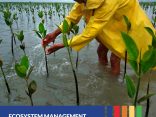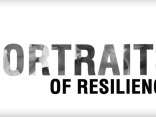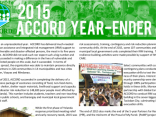
This report summarizes the general humanitarian conditions of internally displaced indigenous peoples in Surigao del Sur due to military and paramilitary activities in the area. The assessment, which covered 28 Lumad communities from 5 municipalities, was conducted in the evacuation center at Tandag City where these communities are temporarily staying. Information was gathered through conduct of several focused group discussions, key informant interviews, and analysis of available secondary data.
The general findings of the assessment were the following:
-
Security remains unstable. There is no clear accountability as to ensuring the safety and security of communities. Displaced families cannot go back to their respective communities until they are given assurances of safety and security. Other cases of displacement throughout Mindanao due to activities of military and paramilitary group were also reported.
-
Access to food remains a critical concern for affected communities. The provincial government and other humanitarian groups are providing food aid. However, food quality and food diversity have to be improved.
-
Farming and other livelihood activities are affected and will result to food insecurity in the next months or possibly next year.
-
Camp management system has been effectively established by local leaders, people’s organisations and teachers.
-
Shelter conditions are extremely difficult. Poor shelter conditions are putting evacuees at risk, especially the children, elderly, women, and persons with disability.
-
Water, Sanitation and Hygiene (WASH) and health are critical issues. Access to potable water is limited and sanitation remains a challenge. High number of acute respiratory cases and other illnesses such as chicken pox, sore eyes, diarrhea, and chicken pox has been reported.
-
Education of some 913 students was interrupted with the forced closure of 11 tribal schools. Some schools have partially resumed classes, however, temporary learning spaces and teaching materials are insufficient.
-
Assistance from different actors including the government and several humanitarian organisations were provided, however limited. Water and sanitation facilities, educational materials for school children, and supplies to improve temporary living spaces were among the urgent needs.
The volatile situation of displaced communities is expected to last until six months to a year, or until the safety and security issues of Lumad communities are addressed. Provincial government expressed concern over its capacity to sustain food aid with dwindling resources of the LGU. Alternative means to earn income and access to food are being explored by the community, but will need support from external sources.
From the initial assessment, several recommendations were identified:
-
Provide support to strengthen and improve the existing camp management systems.
-
Provide assistance to supplement existing food aid and ensure that the specific needs of the most vulnerable evacuees (pregnant and lactating women, infants, persons with disabilities) are met.
-
Provide assistance to set up alternative livelihoods while at evacuation center.
-
Provide assistance to improve living conditions at the evacuation center, i.e. through provision of temporary shelter supplies and other non-food items, provision of health and WASH services.
-
Provide adequate support for the resumption of classes of Lumad children.
-
Increase public awareness on the conditions and struggle of Lumad communities.
PDF Download: Lumad IDPs ACCORD Needs Assessment Report



